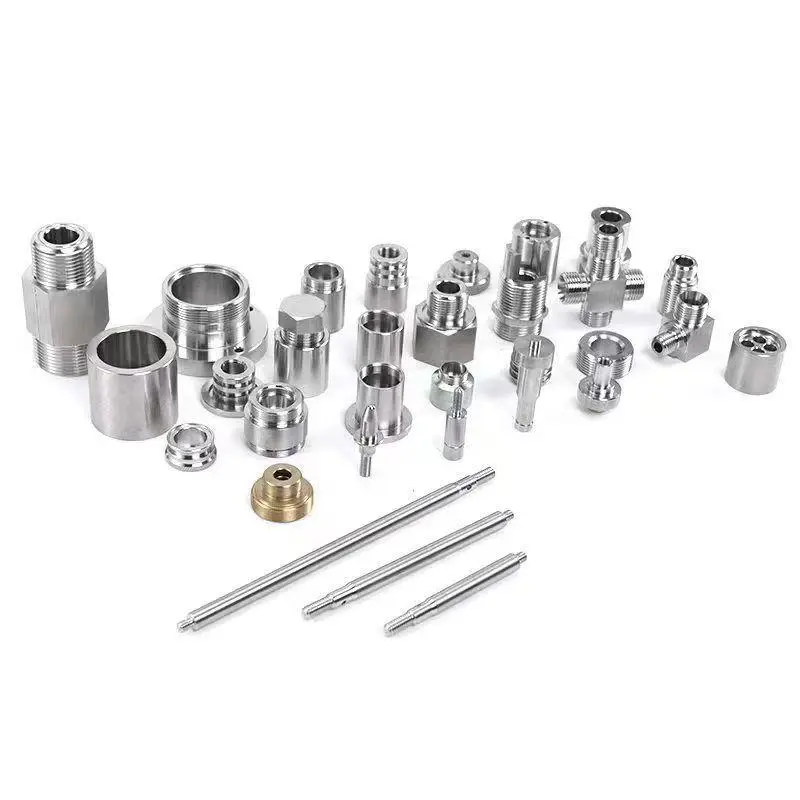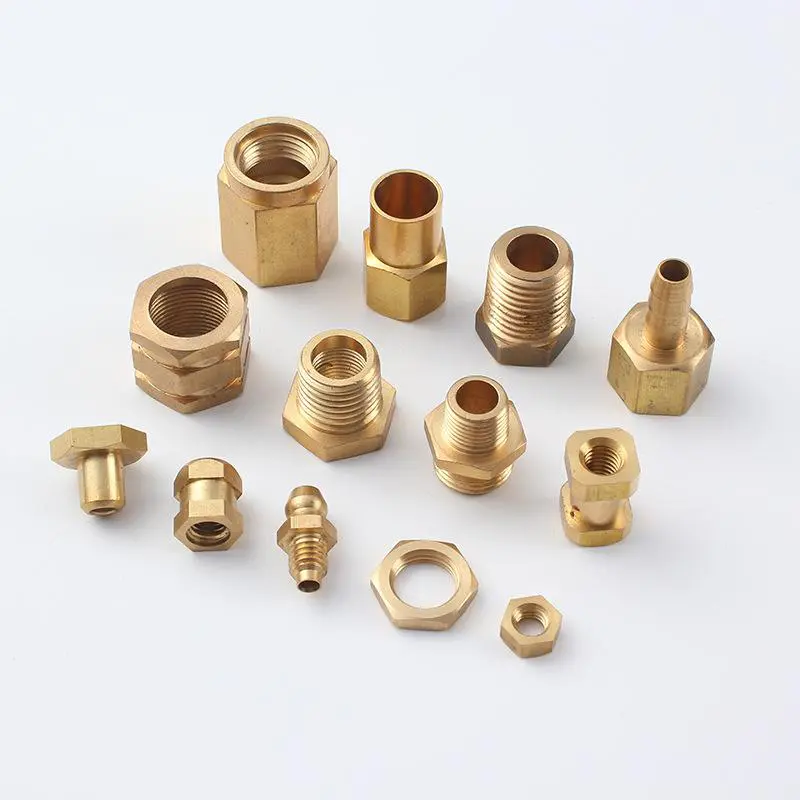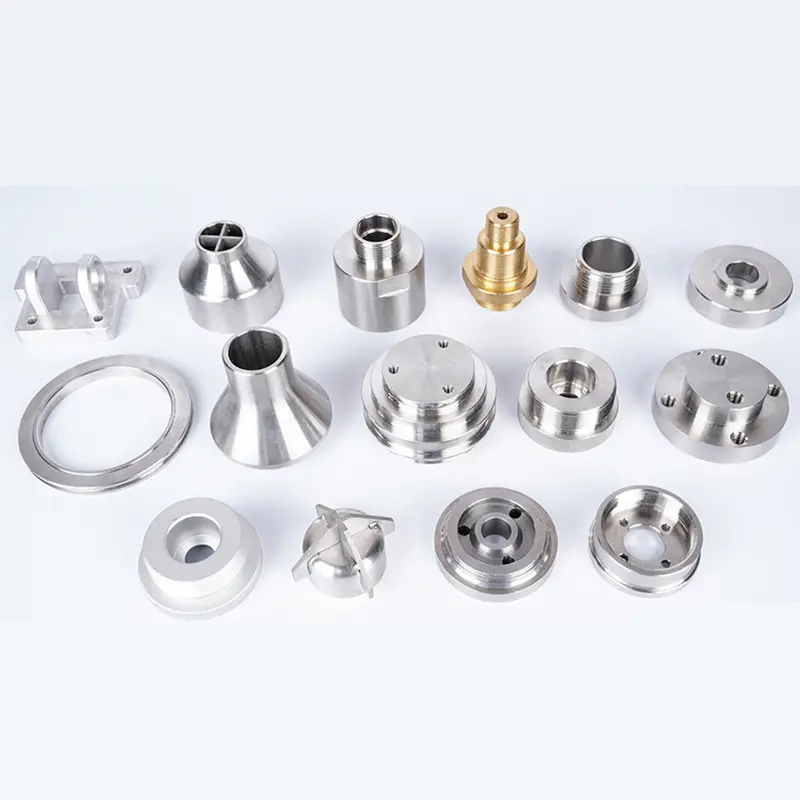Unlocking the Potential of CNC Swiss Brass Machined Parts in Precision Manufacturing
Published Time:
2025-09-11
In the realm of precision manufacturing, CNC Swiss brass machined parts stand out for their versatility and precision. These components are produced using advanced CNC (Computer Numerical Control) machining techniques, which allow for intricate design possibilities and tight tolerances. Here, we delve into the benefits and applications of CNC Swiss brass machined parts, offering insights that professionals in the mechanical processing industry will find useful.
One of the primary advantages of using CNC Swiss brass machined parts is their exceptional precision. The Swiss machining process is renowned for its ability to produce small, complex components with high accuracy. This is particularly beneficial for industries that require tight tolerances, such as aerospace, automotive, and medical device manufacturing. The precision offered by CNC Swiss machining ensures that each part meets the specific requirements of the application, reducing the risk of errors and rework.
Brass, as a material, also has unique properties that enhance the performance of machined parts. It is known for its excellent machinability, corrosion resistance, and good electrical conductivity. These characteristics make brass an ideal choice for a wide range of applications, including fittings, valves, and connectors. The ability to produce intricate designs with brass using CNC Swiss machining not only improves functionality but also offers aesthetic benefits, as brass components can be visually appealing.
Another significant benefit of utilizing CNC Swiss brass machined parts is the efficiency of the manufacturing process. CNC machines operate continuously and can produce multiple parts simultaneously, significantly reducing production time compared to traditional machining methods. This efficiency not only helps manufacturers keep up with demand but also lowers labor costs and minimizes material waste. The automated nature of CNC machining allows for consistent quality, which is vital for maintaining standards in precision manufacturing.
Furthermore, the adaptability of CNC Swiss machining allows manufacturers to easily switch between different designs and specifications without the need for extensive retooling. This flexibility is particularly advantageous in a fast-paced market where customer requirements can frequently change. Manufacturers can quickly respond to new demands, making it easier to innovate and stay competitive.
In summary, CNC Swiss brass machined parts offer a combination of precision, material advantages, and manufacturing efficiency that is hard to match. For professionals in the mechanical processing sector, understanding the capabilities and benefits of these components is essential for enhancing productivity and ensuring high-quality outcomes in their projects. By leveraging the strengths of CNC Swiss machining, manufacturers can not only meet but exceed the expectations of their clients in a demanding industry.
One of the primary advantages of using CNC Swiss brass machined parts is their exceptional precision. The Swiss machining process is renowned for its ability to produce small, complex components with high accuracy. This is particularly beneficial for industries that require tight tolerances, such as aerospace, automotive, and medical device manufacturing. The precision offered by CNC Swiss machining ensures that each part meets the specific requirements of the application, reducing the risk of errors and rework.
Brass, as a material, also has unique properties that enhance the performance of machined parts. It is known for its excellent machinability, corrosion resistance, and good electrical conductivity. These characteristics make brass an ideal choice for a wide range of applications, including fittings, valves, and connectors. The ability to produce intricate designs with brass using CNC Swiss machining not only improves functionality but also offers aesthetic benefits, as brass components can be visually appealing.
Another significant benefit of utilizing CNC Swiss brass machined parts is the efficiency of the manufacturing process. CNC machines operate continuously and can produce multiple parts simultaneously, significantly reducing production time compared to traditional machining methods. This efficiency not only helps manufacturers keep up with demand but also lowers labor costs and minimizes material waste. The automated nature of CNC machining allows for consistent quality, which is vital for maintaining standards in precision manufacturing.
Furthermore, the adaptability of CNC Swiss machining allows manufacturers to easily switch between different designs and specifications without the need for extensive retooling. This flexibility is particularly advantageous in a fast-paced market where customer requirements can frequently change. Manufacturers can quickly respond to new demands, making it easier to innovate and stay competitive.
In summary, CNC Swiss brass machined parts offer a combination of precision, material advantages, and manufacturing efficiency that is hard to match. For professionals in the mechanical processing sector, understanding the capabilities and benefits of these components is essential for enhancing productivity and ensuring high-quality outcomes in their projects. By leveraging the strengths of CNC Swiss machining, manufacturers can not only meet but exceed the expectations of their clients in a demanding industry.
Previous Page
NewsCenter
Beijing Pafinal Precision Machinery Co., Ltd.
Email:sales@pafinal.com

Address: No. 239 Huanhe South Road, Tianjin Pilot Free Trade Zone (Airport Economic Zone), Tianjin
中企跨境-全域组件
制作前进入CSS配置样式
sales@pafinal.com:
Whatsapp:
在线客服添加返回顶部
图片alt标题设置: PAFINAL
表单验证提示文本: Content cannot be empty!
循环体没有内容时: Sorry,no matching items were found.
CSS / JS 文件放置地




 2025-09-12
2025-09-12


